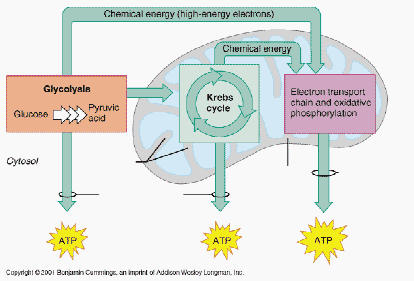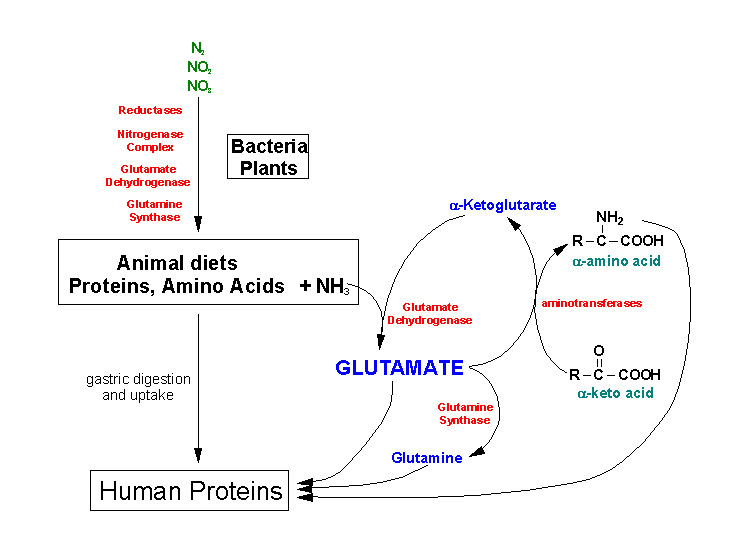Summary
In conclusion, oxidoreductases are a class of enzymes that catalyze oxidoreduction reactions (17). Oxidoreductases catalyze the transfer of electrons from one molecule (the oxidant) to another molecule (the reductant). Oxidoreductases catalyze reactions similar to the following, A– + B → A + B– where A is the oxidant and B is the reductant (19). There are six different types of oxidoreductases: dehydrogenases, peroxidases, hydroxylases, oxygenases, reductases, and oxidases.
This website dealt with three different dehydrogenases: isocitrate dehydrogenase, glyceraldehyde-3-phosphate dehydrogenase, and glutamate dehydrogenase. All three dehydrogenases contain a different number of chains, have different cellular locations, are involved in different pathways, differ in their reversibility, and thermodynamics. However, each dehydrogenase are allosterically activated by ADP, and are inactivated by ATP.
|
Overview of Aerobic Metabolism
|
Overview of Nitrogen Metabolism
|

